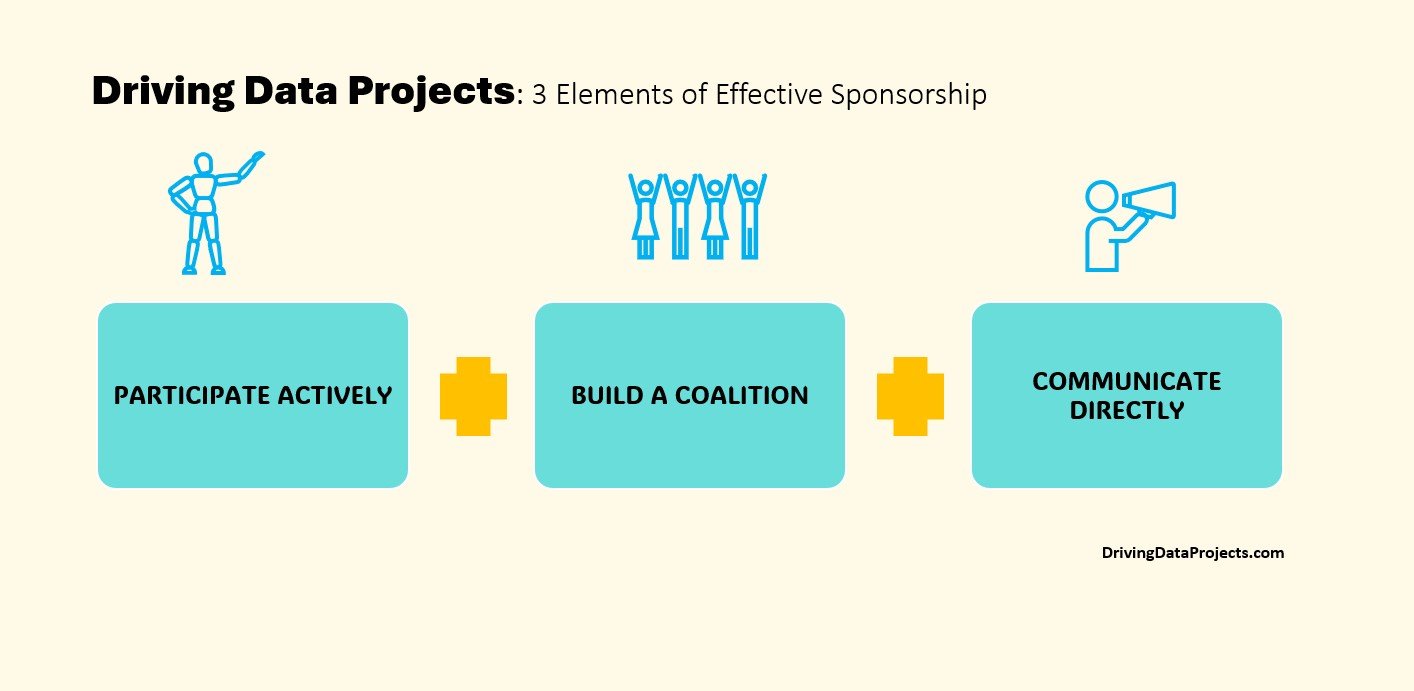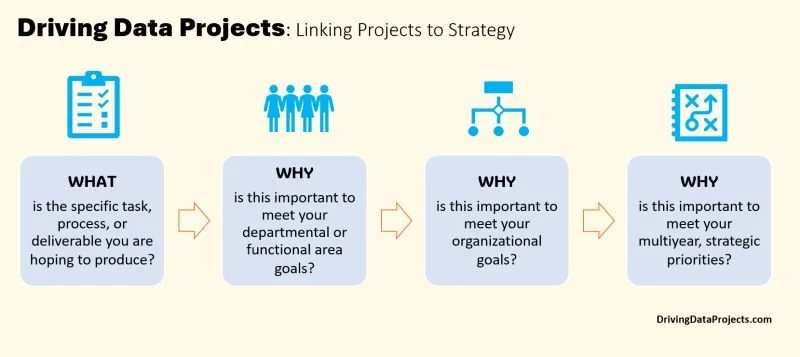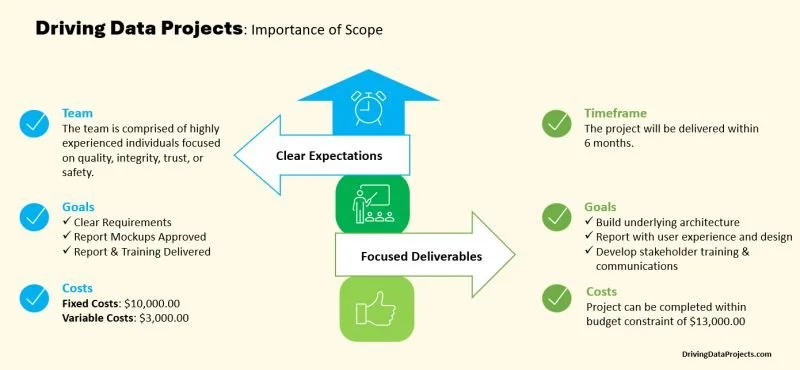A popular misconception of senior leadership is that effective executive sponsorship is a clearly understood skill. Many assume executives receive developmental feedback about becoming effective sponsors. Sadly, there is little training on sponsorship from middle management on up.
Leaders often accept sponsorship of an activity, not knowing what it entails. Some think it means sending a few enthusiastic emails about an initiative, propping up delegates in meetings, and moving on to the next thing. Some organizational cultures tolerate those actions as enough.
Countdown: Book Excerpt Chapter 2
Book Excerpt: While a fully funded budget that supports data as a service is an integral part of a data transformation’s financial picture, few are fully staffed or funded. Three-quarters of executives confirm their organization now has some form of data strategy (however rudimentary), but a paltry 16% say they have the skills and capabilities necessary to deliver it.[1] Even though the average staffing budget is growing yearly, finding the skills and capabilities to execute data projects is becoming harder and harder.
Read MoreCountdown: Book Excerpt Chapter 1
Book Excerpt: Data has traditionally been managed by a combination of information technology (IT), Operations, and Finance. Over the last ten to fifteen years, the chief data officer (CDO) role has come onto the executive scene. While not yet a universal title, the role of the CDO started by reporting through these functions and is beginning to be considered separate.
Read MoreLinking projects to strategy
It can be challenging when stakeholders cannot translate business questions into technical requirements or do not provide enough context for data teams to do so. From there, the data team is often left to maintain the status of a series of ad hoc projects rather than connect these business questions to a larger more defined data strategy.
Read MoreHappy Valentine's
Get it? I made a math joke.
We never accomplish these projects alone. I wanted to extend a small note of thanks to those who supported me along the way. <3
Read MoreWhat does it take to become data-driven?
Since most people don’t know a lot about IT organizations or data teams it’s important to understand why moving from ad hoc efforts to a mature approach to driving data projects makes sense. The timing might not be right (now). Becoming data-driven through data as a service requires a serious investment of resources, finances, staff, equipment, services, etc.; scaling efforts will only increase those topline demands. It’s a serious ongoing commitment many organizations find themselves surprised by—even today.
Read MoreBack to Basics: The Benefits of Data Projects
Data teams should be regarded as intentional business partners because they provide the underlying technology that enables business strategy and maintains data as a corporate asset. They can help educate business partners on the upstream and downstream impacts of poor data quality, and they can help cultivate more effective ambassadors for data governance across the organization.
Read MoreFinding Meaning in Data Projects by Asking: Why
Most data teams cover WHAT and HOW with standard reports and KPIs. They will optimize processes and analyze business domains impacting the company's bottom line from a data perspective.
But how many data teams truly understand the WHY behind the reports they generate? How many actively consult with the business as a true partner to understand the underlying business concerns behind the numbers? Without the WHY, delivering true value in the WHAT and HOW is ten times harder.
The importance of scope
n driving data projects, I find people underestimate the impact of scoping projects effectively.
Too often, you see technology leads with new platforms or tools looking for a problem to solve, or business leads with a unique one-off request from an executive reporting forum carry over to a data team as a priority requirement, whether it is or not.
Data consumers must be mechanics and pilots: 5 takeaways from the guide
With tell-me features and AI Tools, we forget the importance of and lose ambidexterity skills like managing details and thinking strategically. Additionally, the emphasis used to be on being able to talk to the box and not the people; now, we must reason with the box (and the people). Skills cultivating engaged stakeholders and executive sponsors weren’t emphasized as much but are now increasingly important. Those are radically different skills!
Read More








